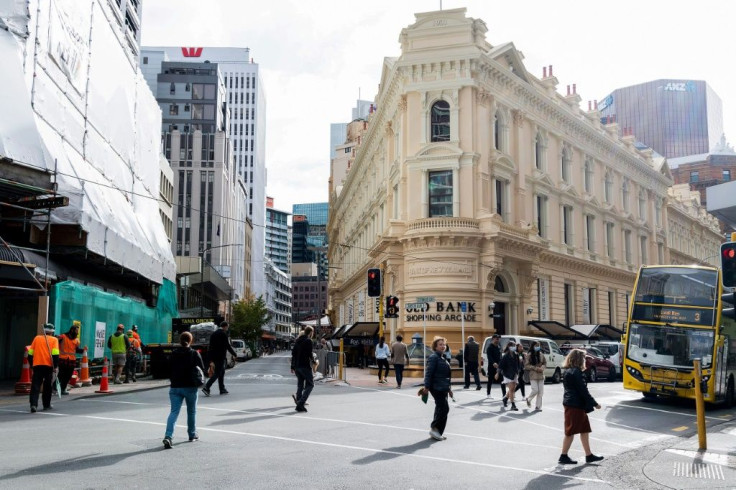New Zealand's Virus-induced Recession Ends With Record Growth
New Zealand roared back from a coronavirus-induced recession with record economic growth of 14.0 percent in the July-September quarter, official data showed Thursday.
The strong figures followed an 11.0-percent decline in the previous quarter -- when New Zealand was in a Covid-19 lockdown.
Finance Minister Grant Robertson said the recovery was a pay-off for New Zealand's success in containing the virus, with only 25 deaths among a population of five million.
"The economic bounce back is a result of our decision to go hard and early during the Covid-19 pandemic," he said.
"We supported more than 1.8 million workers through the Wage Subsidy Scheme and invested billions of dollars into infrastructure, training and creating jobs."
Consumer spending and construction drove growth after a period of enforced hibernation during lockdown.
Statistics New Zealand said the retail, accommodation, and restaurants sectors surged 42.8 percent as Kiwis enjoyed a near-normal domestic existence, while construction rose 52.4 percent.
"This resulted in the strongest quarterly growth in GDP on record in New Zealand," SNZ senior manager Paul Pascoe said.
Despite the stellar quarterly performance, the data showed New Zealand's economy shrank 2.2 percent year on year.
"Even though activity across the country largely returned to pre-Covid-19 levels, we haven't recouped all the activity or production lost as a result of the lockdown," Pascoe said.

New Zealand has been widely praised for its Covid-19 response, which involved a strict lockdown to suppress community transmission, followed by extensive testing and contract tracing to deal with any subsequent outbreaks.
The country has recorded a total of 1,744 coronavirus cases, with all 43 currently active cases detected at the border.
The border remains closed, with all international arrivals required to undergo two weeks' quarantine.
Kiwibank chief economist Jarrod Kerr said that meant sectors reliant on international travel, such as tourism and education, continued to struggle.
The wildly oscillating quarterly figures were roughly in line with market expectations but Kerr said they were still hard to digest.
"This is as close as you get to a true V-shaped recovery," he said.
"It's clear that 95 percent of our economy is performing particularly well, but we must spare a thought for the other five percent."
Prime Minister Jacinda Ardern announced plans this week to open a travel bubble with Australia in the first quarter of 2021, which Kerr said would help the tourism industry.
The brief recession -- which covered the first and second quarters of this year -- was New Zealand's first for a decade, following non-stop growth since 2010.
Robertson said there was no room for complacency as the economy was not yet back to pre-coronavirus levels and growth could be patchy for some time because of the pandemic.
"The full economic effects of Covid-19 are still to be felt in New Zealand and across the world," he said.
© Copyright AFP {{Year}}. All rights reserved.





















